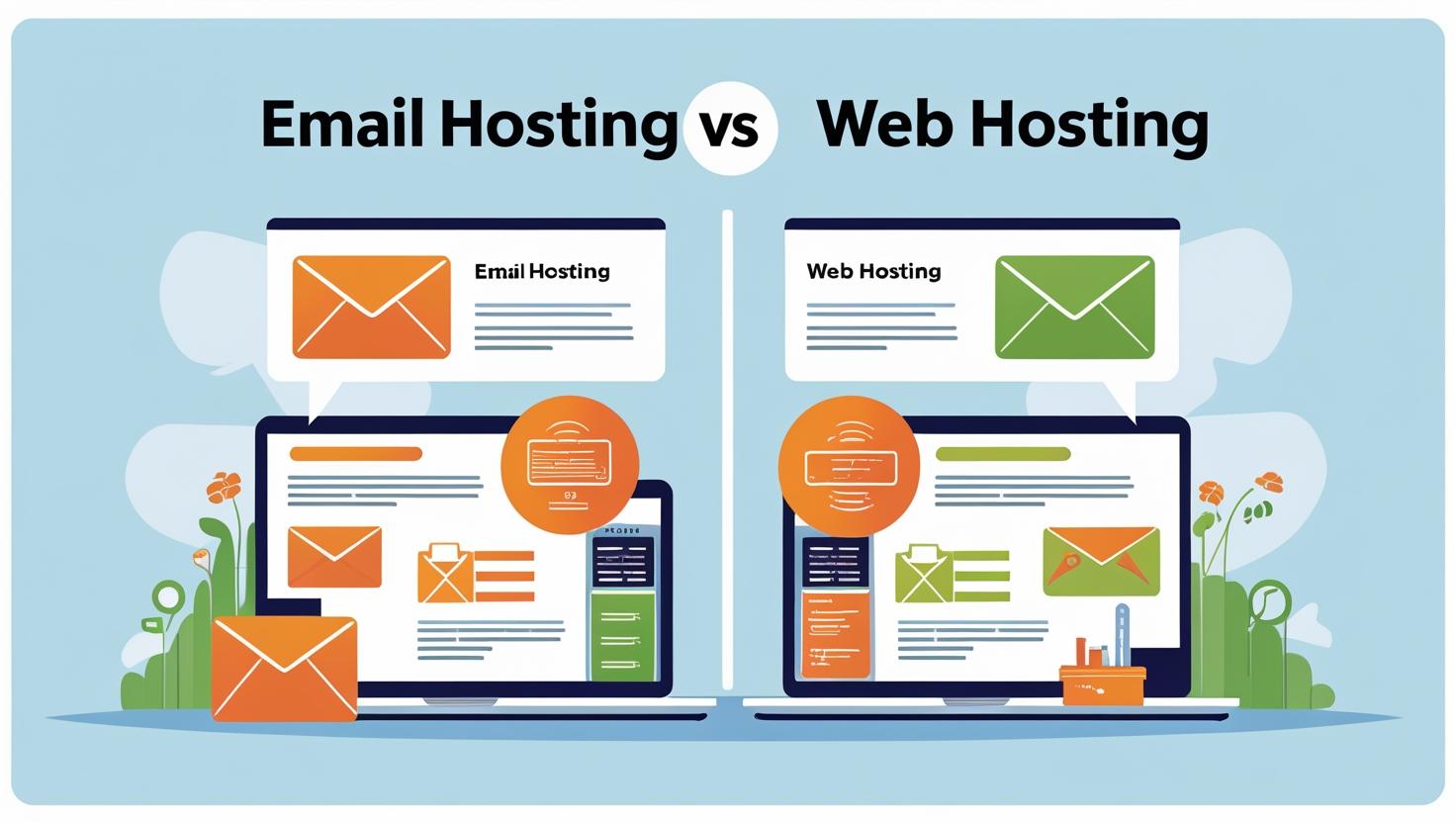
Email Hosting vs Web Hosting
Email Hosting vs Web Hosting – What’s the Difference?
📌 Introduction
Many beginners confuse email hosting with web hosting, but they serve different purposes. If you’re starting a website or business online, understanding their roles is crucial. Let’s break down the difference between the two and help you decide which one (or both) you need.
🖥️ What is Web Hosting?
Definition:
Web hosting is a service that allows you to store your website’s files (HTML, CSS, images, databases) on a server so visitors can access it via the internet.
Key Features:
-
Stores website data
-
Runs CMS like WordPress
-
Handles website traffic
-
Supports domains & databases
Examples: HiveRift, Hostinger, Bluehost
📧 What is Email Hosting?
Definition:
Email hosting is a service that manages your email servers, allowing you to send and receive professional emails using your domain name (e.g., yourname@yourdomain.com).
Key Features:
-
Custom domain email addresses
-
Spam & virus protection
-
Large inbox space
-
Business email tools (calendars, contacts, etc.)
Examples: Zoho Mail, Google Workspace, ProtonMail, Namecheap Email Hosting
⚖️ Key Differences: Email Hosting vs Web Hosting
| Feature | Web Hosting | Email Hosting |
|---|---|---|
| Purpose | Hosts website files | Manages email accounts |
| Main Use | Show website on the internet | Send/receive domain emails |
| Storage | Web files, databases | Emails, attachments |
| Protocols | HTTP, FTP, MySQL | IMAP, POP3, SMTP |
| Add-ons | Website builders, CMS | Spam filters, Calendars, Aliases |
🧾 Do You Need Both?
Yes — if you want both a website and professional email, you need both types of hosting.
Some providers (like HiveRift or Hostinger) offer bundled web + email hosting, while others keep them separate.
🧠 Which One Should You Choose?
-
Choose web hosting if you’re launching a website.
-
Choose email hosting if you want a custom business email (like support@yourcompany.com).
-
Choose both if you’re building a brand online.
✅ Conclusion
Web hosting and email hosting serve different but essential roles. Understanding their difference helps you build a secure, professional online presence. Choose smart, and get the right hosting for your needs.